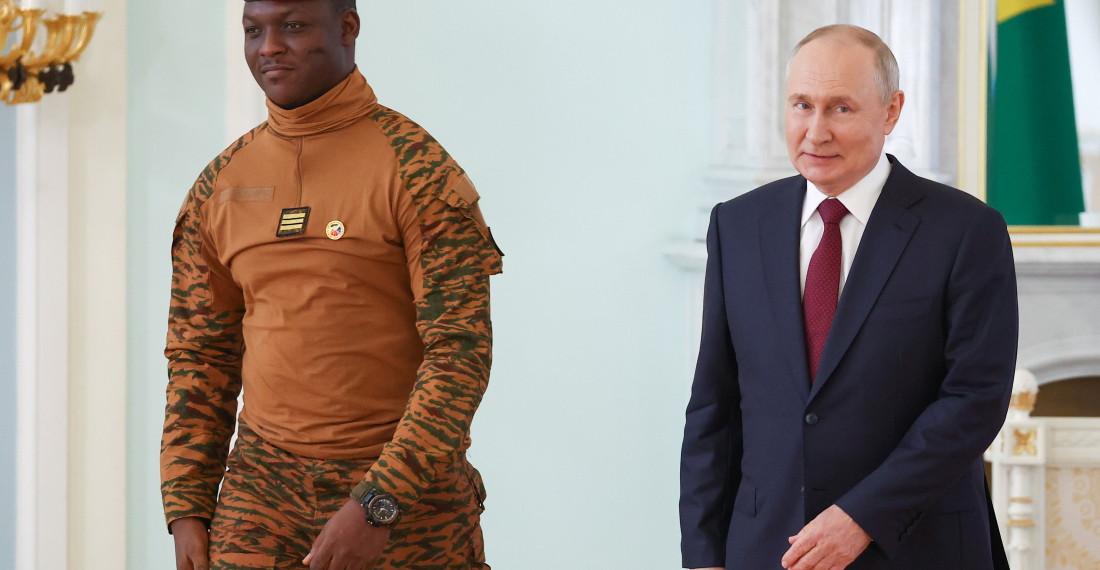The rift in West Africa became more acute over the weekend after three Sahel countries currently ruled by military juntas announced that they were leaving ECOWAS, the Economic Community of West African States - the regional grouping of whom the three countries had been founding members in 1975.
Mali, Niger and Burkina Faso announced the move in a simultaneous announcement on Sunday.
"After 49 years, the valiant peoples of Burkina Faso, Mali, and Niger regretfully and with great disappointment observe that the (ECOWAS) organization has drifted from the ideals of its founding fathers and the spirit of Pan-Africanism," Colonel Amadou Abdramane, Niger junta spokesman, said in a statement.
The three countries were suspended from ECOWAS following the coups, and relations between them and the regional bloc have been deteriorating for months.
"The organization notably failed to assist these states in their existential fight against terrorism and insecurity," Abdramane added.
Last year, they withdrew from an international force known as the G5 that was set up to fight Islamists in the Sahel region, forming their own so-called Alliance of Sahel States.
ECOWAS said Sunday the three countries were "important members of the Community" and the bloc "remains committed to finding a negotiated solution to the political impasse."
It added that it had "yet to receive any direct formal notification" from the countries about their withdrawal."
At a summit in Nigeria's capital Abuja in December, West African leaders demanded a "short" period of transition toward civilian rule in coup-hit Niger before they would ease economic sanctions on the country.
Niger's President Mohamed Bazoum was deposed in July 2023, and the junta said it would take three years to return to civilian rule.
In Mali's case, civilian rule was last in place before the first of two coups, in August 2020.
Burkina Faso's elected government was ousted in 2022. The country has not been put under sanctions and its current ruler, Captain Ibrahim Traore has allowed elections to take place this summer.
But Traore has said the fight against the insurgents remains the top priority.
Meanwhile, in a separate development Burkina Faso says it has received 25,000 tonnes of free wheat from Russia.
Confirming the news on Friday, one minister called the delivery a "priceless gift".
Ties between Moscow and Ouagadougou have been strengthening since the military took power in two successive coups in 2022.
Last month Russia re-opened its embassy in Burkina Faso which had been closed since the collapse of the Soviet Union.
Burkina Faso has at the same time been distancing itself from former colonial power France, and last year it ordered its troops to leave.
It was during a summit in St Petersburg last year that President Vladimir Putin promised to send Burkina Faso a gift of thousands of tonnes of wheat. Speaking at a ceremony on Friday, Burkina Faso's Foreign Minister Karamoko Jean Marie Traoré said the wheat consignment from Russia would help to push his nation towards "developing our own production capacity in order to halt once and for all dependence on food from abroad".
Nandy Some Diallo, Burkina Faso's minister for solidarity and humanitarian action, said the government was "delighted" and called the grain delivery a "priceless gift" that would benefit people who were internally displaced and vulnerable.
Earlier this week, there were reports that a contingent of Russian troops had arrived in Burkina Faso.
source: commonspace.eu with BBC (London, Deutche Welle (Cologne) and agencies;
photo: Russian President Vladimir Putin has met with Burkina Faso’s interim military leader, Captain Ibrahim Traore in August 2023.






